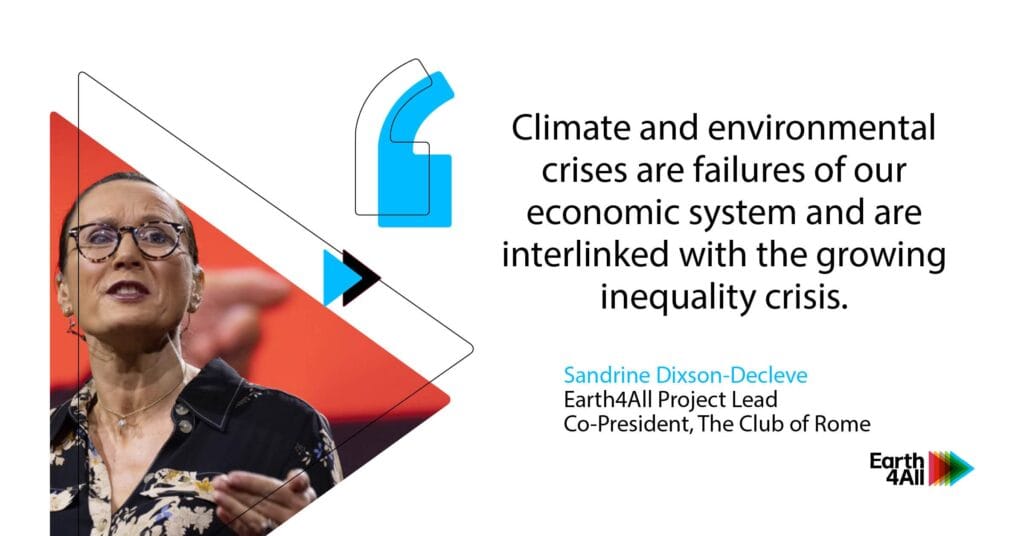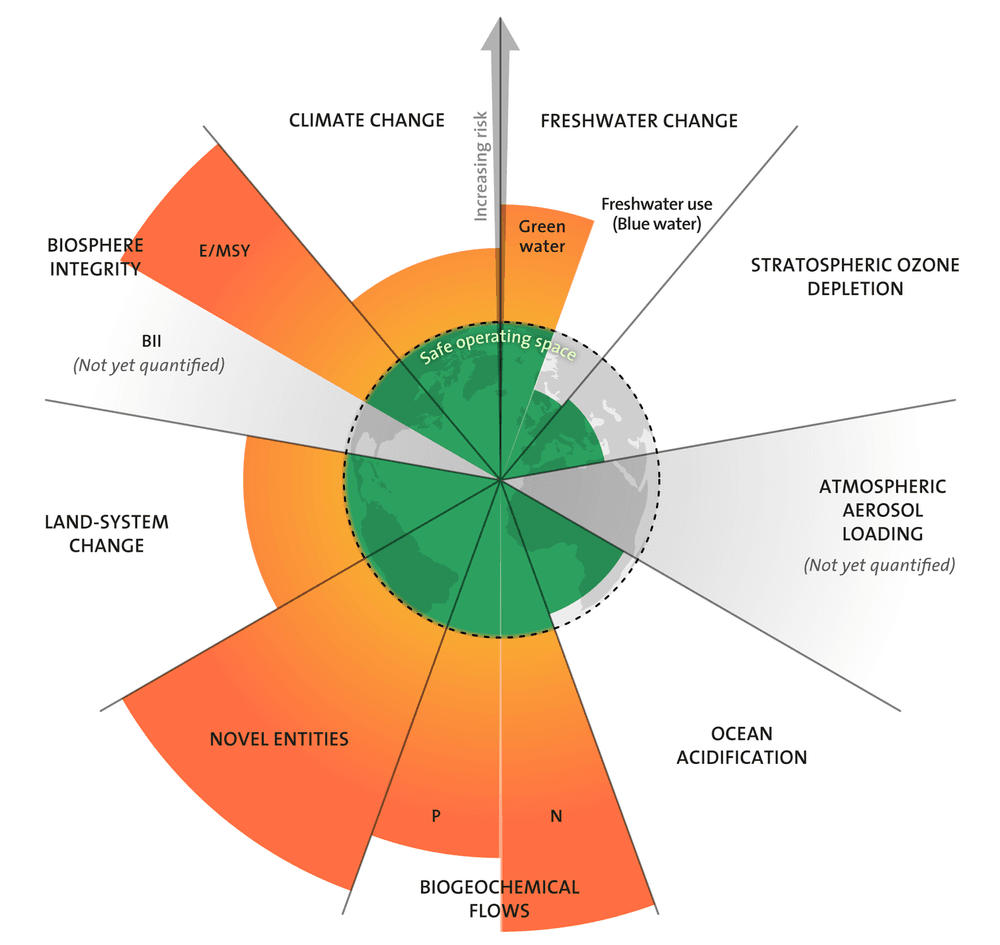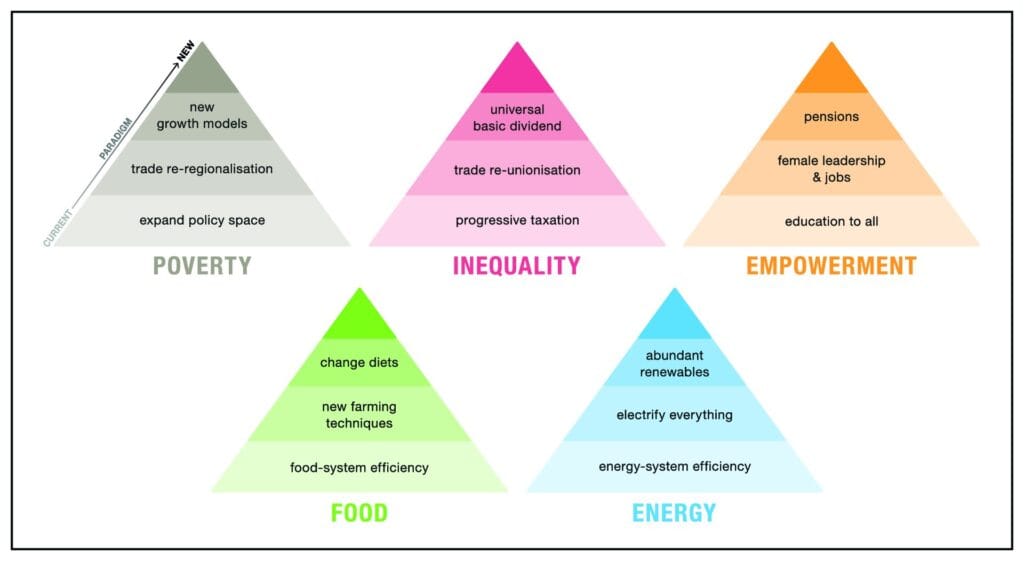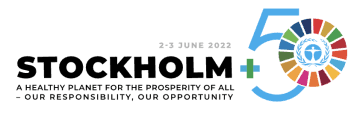
We all know that the current system isn’t working for people or the planet. The extremes of poverty, inequality, human rights abuse, uncertainty and danger caused by extreme weather and climate change within an impoverished world is painful to witness, and causing great suffering.
What makes it worse is that our current predicament could have been averted. Fifty years ago, a group of scientists published a report ahead of the 1972 Stockholm Summit for the Earth. It was the first report to the Club of Rome – titled The Limits to Growth and it warned that if growth trends in population, industrialisation, resource use and pollution continued unchanged, it would lead to global-scale environmental degradation, triggering existential dangers for humanity. The report catalysed conversations around the need to rethink economic growth and linear economic models, helping citizens across the world to be more aware of the profound dysfunction of the economic system we had collectively created.
That wake-up call was not enough to steer society away from disaster. Today, scientists describe how human activities are transgressing six of the nine planetary boundaries. Societies are now dealing with multiple, cascading shocks, from the global financial crisis to climate change, to growing inequalities, amid a pandemic and the rapid escalation of new geopolitical crises. Poverty is still a harsh reality for millions around the world.

This June, governments will mark Stockholm+50, five decades on since the 1972 United Nations Conference on the Human Environment and the publication of the Limits to Growth. Time can move in the blink of an eye, and also know it’s running out. What has become clearer over the course of the last few decades is how we fail to think in “systems” to address present day emergencies. We move from event to event, without major breakthroughs. We can no longer let another gathering of governments turn into a “non-moment”.
What the world needs at this time of multiple crises is nothing less than five extraordinary ‘turnarounds’: ending poverty, addressing inequality, reaching gender equity, transitioning to clean energy and making our food system healthy for people and planet.
Each turnaround carries specific policy recommendations that will drive impact, a ripple effect if you will, to fundamentally shift and change society for the better to guarantee an earth that is thriving for all species.

Humanity needs a forward-looking economic plan that will allow us – all of us – to achieve wellbeing within planetary boundaries. Earth4All brings together dynamic systems modelling stress tested by a Transformational Economics Commission composed of economic thought leaders from across the globe. We have looked at the failure of our current operating system; and the inter-connectedness of multiple issues and unpacked current tensions and possible solutions. In September, we will publish the findings of this exciting and ground-breaking analysis.
What we know is that we don’t only need extraordinary action on the environment, but we must also rapidly reduce social tension in the system. We need more political will, more capacity to think in “systems”, not events or institutions. We must have the courage to recognise that the climate and environmental crises are essentially failures of our economic system and are interlinked with the growing inequality crisis.
At Stockholm this June, governments convene to discuss how we can ensure prosperity for all on a healthy planet. A noble and necessary goal! However, we can no longer allow for convening for convenience nor empty words. The Club of Rome will launch a renewed call to action and key policy demands with Earth4All partners, its Planetary Emergency Partnership and High Ambition Countries. Pledges are plentiful but now we need implementation on the ground with joined up environmental and social transformation.

Governments at Stockholm+50 must acknowledge that in order to solve the climate, health, environmental and biodiversity crises they need to lead on a major transformation of our economic system and address the great social divide within and between countries.
This means:
- Adopting new economic indicators (environmental, social, economic) that focus on delivering greater wellbeing within planetary boundaries, whilst support a shift away from unsustainable consumption as a key driver of GDP growth in high-income countries.
- Supporting reform of the international financial system and trade regulations that are called for by low- to middle-income countries. Specifically:
- Supporting the reform of the International Monetary Fund’s Special Drawing Rights to facilitate low- to middle-income countries access to financing for the five turnarounds,
- Funding for investment in low-income countries for sectoral transformation.
- Ensuring democratic processes and adopting innovative measures so as to engage citizens and ensure a fair and effective in the transition:
- Supporting the societal debate on transformation towards wellbeing economies through national citizen assemblies with binding powers.
- Introducing policy innovations that reduce pressure on Earth and help ensure all share in the wealth of global and social commons, for example through citizens’ funds for the global commons that adopt “fee and dividend” approaches.
This is the decisive decade to act. 74% of people in G20 countries want economies that put people and planet before profit. We can’t afford separate conversations and siloed policy on climate, biodiversity, inequality or poverty. All Ministers must assume responsibility for the survival of civilisation on this planet. All economic and financial sectors must be part of the solution.
We feel a sense of urgency. We don’t have another 50 years nor even more than 8 years to put in place ambitious targets. This is the moment when leaders at Stockholm +50 must show true leadership. Implement transformational economic policy, correct current systems failures and deliver the levers for change for humanity to guarantee that we all emerge from emergency.



